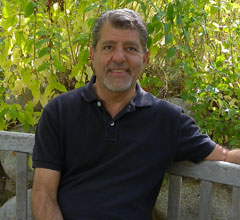
Some background of the Gospel of Luke provides insight of why this story appears in this gospel and no others. Luke wrote in the 80’s AD after both Matthew and Mark (and before John). Jesus resurrection was 50 years earlier. He wrote it in Antioch in Turkey at a time when Christianity was expanding to the Gentiles all throughout the Mediterranean. How was Christianity to unite these peoples ?
The issues are taken up in The Hidden Power of the Gospels: Four Questions, Four Paths, One Journey by Alexander Shaia.
“Nero had executed the Jewish Christus followers of Rome twenty years earlier, although persecution had not extended to Christus believers throughout the rest of the empire at that time. Then in 70 CE, Vespasian leveled the Great Temple of Jerusalem and massacred all its priests, throwing Judaism into total disarray. In the steps that religion took to survive, a process began that still resonates in the lives of Christians and Jews.
“The slaughter resulted in a complete lack of religious authority. The Pharisees, educated teachers of Jewish religious law but not officially connected to the Temple, stepped into the vacuum. By the mid-80s CE, the time of Luke’s gospel, their role had significantly increased. In many Jewish communities, their voices rose to roles of clear leadership. In others, they represented merely one of many voices struggling to advise how best to move forward in the face of great loss. Eventually, the Pharisees became the primary voice of the Jewish community, reunifying the people in the absence of the Temple and its priests—but not before Luke began to write.”
And as part of their ascension “The Pharisees advocated for the removal from Judaism of all variant sects who believed that the Messiah had already come. Chief among these were the “Followers of the Way”’ (the Christus sect), who maintained that the Messiah had arrived for the salvation of all people, not just Jew
“They carried pain, and some of them likely had a touch of arrogance attached to their lingering resentments. They had also migrated all over the Mediterranean basin, which presented them with persecution from another quarter. The Roman government was more than nervous about the Christus followers—it was terror-stricken. “The fear of this message led to its oppression of the Christus communities—and the persecution increased steadily.
“The fear of this message led to its oppression of the Christus communities—and the persecution increased steadily.
“Although some scholars believe that the Gospel of Luke was written to a high Roman official in defense of Christianity, others think it was a teaching written in Antioch designed to be distributed among these burgeoning communities across the Mediterranean world.
“In Hebrew teachings, “heart” implies a unitive aspect of one’s humanity that is greater than mere emotion—encompassing body, feelings, will, intuition, and thought—everything but soul.
“How were the nascent “Followers of the Way” to move forward in the face of being cursed by the Pharisees, abandoned by most of their Jewish friends, and oppressed by the Roman Empire? How could they deal with the hurt and resentments that threatened to poison their lives and divide their families? Should they verbally dispute and defend themselves against each hurt? Should they take up arms and fight? Should they hold to traditional practices?
“Luke draws a stark spiritual line, using his gospel to focus on spiritual maturation. He instructs the Followers of the Way to stringently challenge themselves, speak their truth boldly, yet maintain- inner equanimity and avoid self-righteousness. Faced with opposition on all sides, the course Jesus taught in Luke’s gospel was for the Christus believers to “be” at peace, rather than taking up arms or trying to effect change through anger. This gospel is filled with instructions about growing into the capacity for mature relationships and compassion and generosity without boundaries.”
“The Gospel thus became a “how to” manual designed to be distributed among these burgeoning communities across the Mediterranean world.”





 Beginning on Pentecost 2, we enter the Church year known as Ordinary Time. After Easter, Jesus’s ascension into heaven, and the coming of the Holy Spirit to us at Pentecost, we accept responsibility for being and becoming Christ’s body in the world. We are called by Jesus to live in community, our lives together guided not only by the example of Jesus, but by the guidance of the Holy Spirit.
Beginning on Pentecost 2, we enter the Church year known as Ordinary Time. After Easter, Jesus’s ascension into heaven, and the coming of the Holy Spirit to us at Pentecost, we accept responsibility for being and becoming Christ’s body in the world. We are called by Jesus to live in community, our lives together guided not only by the example of Jesus, but by the guidance of the Holy Spirit. 



 Trinity Sunday, the first Sunday after Pentecost, honors the Holy Trinity—the Father, Son and Holy Spirit. Although the word “trinity” does not appear in Scripture, it is taught in Matthew 28:18-20 and 2 Corinthians 13:14 (and many other biblical passages). It lasts only one day, which is symbolic of the unity of the Trinity.
Trinity Sunday, the first Sunday after Pentecost, honors the Holy Trinity—the Father, Son and Holy Spirit. Although the word “trinity” does not appear in Scripture, it is taught in Matthew 28:18-20 and 2 Corinthians 13:14 (and many other biblical passages). It lasts only one day, which is symbolic of the unity of the Trinity. 